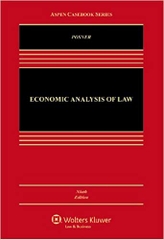-
-
-
Tổng tiền thanh toán:
-
-
Thông tin
-
Tìm sách theo yêu cầu
Book Description
Publication Date: September 12, 1996 | ISBN-10: 0262150476 | ISBN-13: 978-0262150477 | Edition: 1ST
Foundations of International Macroeconomics is an innovative text that offers the first integrative modern treatment of the core issues in open economy macroeconomics and finance. With its clear and accessible style, it is suitable for first-year graduate macroeconomics courses as well as graduate courses in international macroeconomics and finance. Each chapter incorporates an extensive and eclectic array of empirical evidence. For the beginning student, these examples provide motivation and aid in understanding the practical value of the economic models developed. For advanced researchers, they highlight key insights and conundrums in the field.Topic coverage includes intertemporal consumption and investment theory, government spending and budget deficits, finance theory and asset pricing, the implications of (and problems inherent in) international capital market integration, growth, inflation and seignorage, policy credibility, real and nominal exchange rate determination, and many interesting special topics such as speculative attacks, target exchange rate zones, and parallels between immigration and capital mobility.Most main results are derived both for the small country and world economy cases. The first seven chapters cover models of the real economy, while the final three chapters incorporate the economy's monetary side, including an innovative approach to bridging the usual chasm between real and monetary models.
Editorial Reviews
Review
"This amazingly comprehensive book provides a lucid explanation of modernmacroeconomic theory and applies the theory to a wide range of internationalissues. For reference and classroom use, it sets a new standard in openeconomy macroeconomics. The use of boxes and applications in anadvanced graduate text such as this is unorthodox, but extremelyeffective." John Campbell, Otto Eckstein Professor of Applied Economics, Harvard University
"This is a landmark treatment of dynamic, open-economy macroeconomics—the only kind of macroeconomics that matters any more." Paul Romer, Graduate School of Business, Stanford University
About the Author
Kenneth Rogoff is Thomas D. Cabot Professor of Public Policy and Professor of Economics at Harvard University and a Research Associate of the National Bureau of Economic Research.
Product Details
- Series: Foundations of International Macroeconomics
- Hardcover: 832 pages
- Publisher: The MIT Press; 1ST edition (September 12, 1996)
- Language: English
- ISBN-10: 0262150476
- ISBN-13: 978-0262150477
- Product Dimensions: 10.5 x 7 x 1.6 inches
- Shipping Weight: 2.4 pounds (View shipping rates and policies)
- Average Customer Review: 4.5 out of 5 stars See all reviews (8 customer reviews)
- Amazon Best Sellers Rank: #160,857 in Books (See Top 100 in Books)
- #44 in Books > Textbooks > Business & Finance > Economics > Economic Theory
- #85 in Books > Textbooks > Business & Finance > International Business
Most Helpful Customer Reviews
31 of 31 people found the following review helpful
5.0 out of 5 stars Excellent Textbook March 8, 2005
Format:Hardcover
International economics is not my field, even if I do find it interesting. As a graduate student, I liked this book a lot. It is not brilliantly written, and it is at times rather dull reading. BUT it a VERY clear and modern treatment of an important subject by two of the best scholars in the field. Overall, it's a very "user-friendly" graduate textbook. Not very entertaining, but it allows you to go through the material (much of it rather advanced) without too much pain, and without many leaps of faith (or pages of algebra) to go from one equation to the next. And there are many well developed applications which will help you see how the theory relates to the real world. There are many exercises to test your (or your students') knowledge of the field, whose solutions are also separately available.
Being this a graduate textbook, reading it requires a strong technical background, so if you are simply looking for a book to deepen your knowledge of a subject that you may only know through op-ed pieces, you should probably look elsewhere (e.g. undergraduate textbooks such as Krugman and Obstfeld). But if you are looking for an advanced but approachable and modern treatment of international macro, this book would be a very good bet. Highly recommended.
Here are some details about the book:
The chapters
1 Intertemporal Trade and the Current Account Balance
2 Dynamics of Small Open Economies
3 The Life Cycle, Tax Policy, and the Current Account
4 The Real Exchange Rate and the Terms of Trade
5 Uncertainty and International Financial Markets
6 Imperfections in International Capital Markets
7 Global Linkages and Economic Growth
8 Money and Exchange Rates under Flexible Prices
9 Nominal Price Rigidities: Empirical Facts and Basic Open-Economy Models
10 Sticky-Price Models of Output, the Exchange Rate, and the Current Account
Some examples of the applications
- Energy Prices, Global Saving, and Real Interest Rates
- The Relative Impact of Productivity Shocks on Investment and the Current Account
- Do Government Budget Deficits Cause Current Account Deficits?
- Feldstein and Horioka's Saving-Investment Puzzle
- Government Debt and World Interest Rates Since 1970
- Sectoral Productivity Differentials and the Relative Prices of Nontradables in Industrial Countries
- Productivity Growth and Real Exchange Rates
- International Portfolio Diversification and the Home Bias Puzzle
- How Large Are the Gains from International Risk Sharing?
- How Costly Is Exclusion from World Insurance Markets?
- How Have Prior Defaults Affected Countries Borrowing Terms?
- Can Capital Deepening Be an Engine of Sustained High Growth Rates: Evidence from Fast-Growing East Asia
- Population Size and Growth
- Testing for Speculative Bubbles
- Central Bank Independence and Inflation
- Openness and Inflation
Appendix
- Methods of Intertemporal Optimization
- A Model with Intertemporally Nonadditive Preferences
- Solving Systems of Linear Difference Equations
- Multiperiod Portfolio Selection
- Continuous-Time Maximization and the Maximum Principle
Being this a graduate textbook, reading it requires a strong technical background, so if you are simply looking for a book to deepen your knowledge of a subject that you may only know through op-ed pieces, you should probably look elsewhere (e.g. undergraduate textbooks such as Krugman and Obstfeld). But if you are looking for an advanced but approachable and modern treatment of international macro, this book would be a very good bet. Highly recommended.
Here are some details about the book:
The chapters
1 Intertemporal Trade and the Current Account Balance
2 Dynamics of Small Open Economies
3 The Life Cycle, Tax Policy, and the Current Account
4 The Real Exchange Rate and the Terms of Trade
5 Uncertainty and International Financial Markets
6 Imperfections in International Capital Markets
7 Global Linkages and Economic Growth
8 Money and Exchange Rates under Flexible Prices
9 Nominal Price Rigidities: Empirical Facts and Basic Open-Economy Models
10 Sticky-Price Models of Output, the Exchange Rate, and the Current Account
Some examples of the applications
- Energy Prices, Global Saving, and Real Interest Rates
- The Relative Impact of Productivity Shocks on Investment and the Current Account
- Do Government Budget Deficits Cause Current Account Deficits?
- Feldstein and Horioka's Saving-Investment Puzzle
- Government Debt and World Interest Rates Since 1970
- Sectoral Productivity Differentials and the Relative Prices of Nontradables in Industrial Countries
- Productivity Growth and Real Exchange Rates
- International Portfolio Diversification and the Home Bias Puzzle
- How Large Are the Gains from International Risk Sharing?
- How Costly Is Exclusion from World Insurance Markets?
- How Have Prior Defaults Affected Countries Borrowing Terms?
- Can Capital Deepening Be an Engine of Sustained High Growth Rates: Evidence from Fast-Growing East Asia
- Population Size and Growth
- Testing for Speculative Bubbles
- Central Bank Independence and Inflation
- Openness and Inflation
Appendix
- Methods of Intertemporal Optimization
- A Model with Intertemporally Nonadditive Preferences
- Solving Systems of Linear Difference Equations
- Multiperiod Portfolio Selection
- Continuous-Time Maximization and the Maximum Principle
24 of 24 people found the following review helpful
5.0 out of 5 stars a must-have for your private library October 13, 2002
By man
Format:Hardcover
Currently I'm using this book for my class called Trade and Economic Growth I II. The nuances of microeconomic foundations found in chapters 1 to 5 are used to explain and develop the concepts studied in open economy macroeconomics and international finance; so it is recommended that you understand fully the first three chapters of this book at least to understand the rest. The authors try to explain the concepts as clear as possible; however, you have to derive for yourself the equations that appear in the text, which is a challenge for most first year graduate students who are not yet proficient in using the tools of static/dynamic optimization, etc. A reference on mathematical economics such as Chiang's "Fundamental methods of math. econ.," and "Elements of dynamic optimization," or Simon Blume's "Mathematics for economists" should be kept near at hand. Nevertheless, there are many real-world examples that help clarify matters and make the this book more readable and interesting.
XEM CHI TIẾT TẠI AMAZON.COM
- Thông tin chi tiết
- Mục lục
- Đánh giá & bình luận của người mua
- Những cuốn sách cùng chủ đề hoặc có liên quan
Tại web chỉ có một phần nhỏ các đầu sách đang có nên nếu cần tìm sách gì các bạn có thể liên hệ trực tiếp với Thư viện qua Mail, Zalo, Fanpage nhé
Đăng ký nhận tin qua email
Hãy đăng ký ngay hôm nay để nhận được những tin tức cập nhật mới nhất về sản phẩm và các chương trình giảm giá, khuyến mại của chúng tôi.












